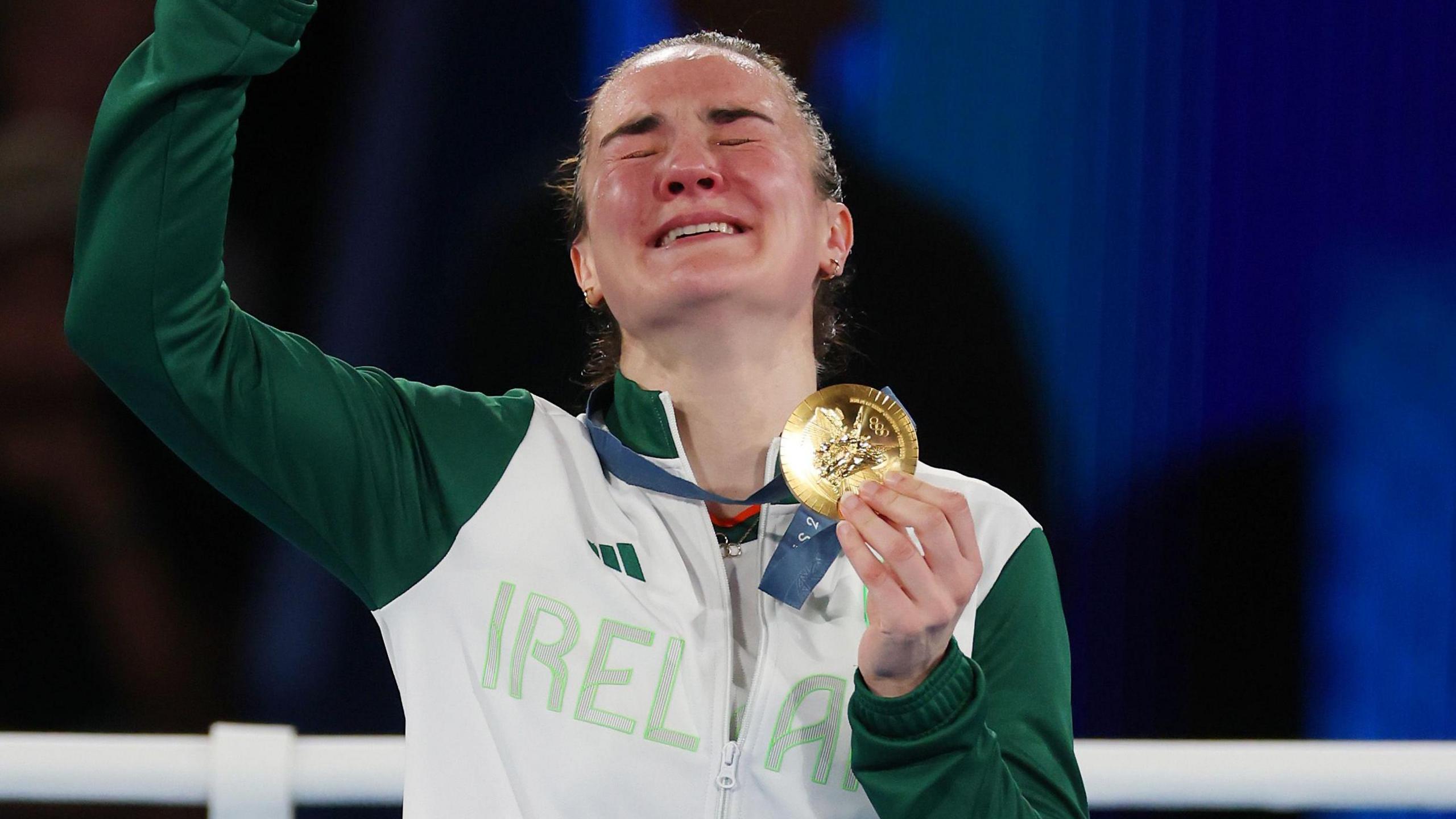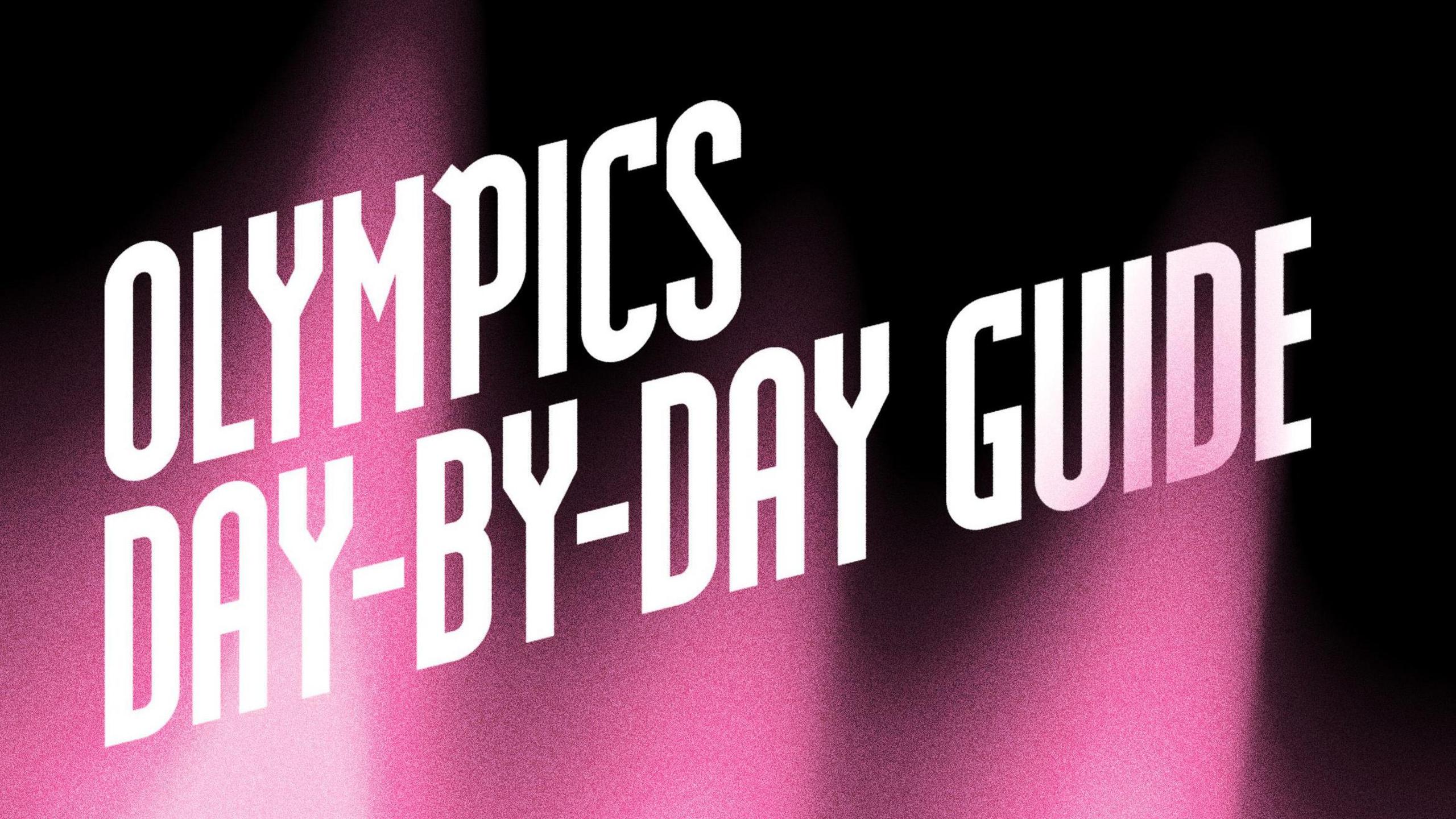Harrington retires after winning second Olympic gold
Ireland's Kellie Harrington secures gold in women's 60kg final
- Published
Ireland's Kellie Harrington made history by winning back-to-back Olympic gold medals with victory against China's Wenlu Yang in the women's 60kg final at Roland Garros.
After the bout, Harrington said that would be the end of her boxing career and the start of her "life chapter" with her partner, Mandy.
And for the 34-year-old, it was the perfect way to go out.
In an atmosphere that felt more like Dublin than Paris, Harrington claimed a split 4-1 points decision over Yang.
Harrington's gold means Paris 2024 is the most successful Olympics in Ireland’s history - with four golds and three bronze medals.
It was fitting that it was Harrington to secure the feat after the Dublin boxer backed up her gold medal from Tokyo three years ago to cement her status as one of Ireland's greatest Olympians.
When the decision was announced, the 34-year-old fell to her knees before dancing in the ring as the huge number of Irish supporters started their party in the stands of the Court Philippe-Chatrier.
The Irish support swelled to the ring-side rows as the medal ceremony was prepared, with the in-house sound system keeping the waiting fans dancing with hit after hit.
When Harrington emerged to receive her gold medal the whistles and cheers were deafening, with the smile on her face visible from everywhere inside the stadium.
Harrington then burst into tears as she was declared Olympic champion for a second time as the reality of her achievement began to sink in.
Khelif wins again to reach final amid eligibility row
- Published6 August 2024
GB's Richardson takes bronze in agonising semi-final loss
- Published6 August 2024
Boxing's gender row - what's going on and are Russia involved?
- Published7 August 2024
Party in stands set to go long into night

The tears started to flow as Harrington received her gold medal in Paris
The Court Philippe-Chatrier, the main arena at Roland Garros, had already reached fever-pitch following Imane Khleif’s semi-final win over Thailand’s Janjaem Suwannapheng.
Harrington entered the stadium to a raucous reception by the Irish fans, who dominated the home of French tennis in their numbers with flags and colour.
It was a controlled start by Harrington, who let Yang come on to the front foot but the Irish fighter was measured in her approach.
Harrington landed a superb blow in the final action of the round, which briefly caused the Chinese fighter to stumble, and she was awarded the round by all but one judge.
The second round followed a similar vein, but Harrington stumbled onto the canvas midway through before unleashing a barrage of punches in an immediate response.
The scores were split in the second round, but it was Harrington who held advantage heading into the decider with three judges in her favour, while two more scored the fight level.
Yang had to come forward in the final round, but again the composure and control by her opponent shone through, as the Irish crowd rose to their feet in the final 10 seconds of the bout.
After the bell both fighters shared an embrace, before Harrington walked around the ring with her hands in the air, before dancing with the joyous Irish support who had travelled to the north west of Paris in their thousands.
When Harrington won Olympic gold in Tokyo she was awarded the freedom of Dublin.
Now, she has enhanced her reputation as one Ireland's sport greats.
Along with rowers Paul O’Donovan and Fintan McCarthy, who defended their double lightweight sculls title, and hammer thrower Pat O’Callaghan, who won gold in 1928 and 1932, Harrington is the only other Irish athlete to defend their Olympic title.
Harrington joins swimmer Daniel Wiffen, gymnast Rhys McClenaghan and rowers O’Donovan and McCarthy as Ireland’s gold medallists at a historic Games in Paris.
Harrington sings a farewell to fans after winning gold
Related topics
- Published10 August 2024

- Published26 July 2024

